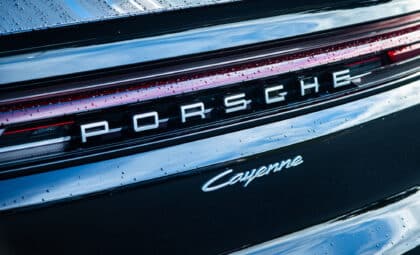On June 24, 2025, a notable legal case unfolded in France that brings up concerns about radar accuracy and some gaps in the law. A Porsche Panamera was clocked at 126.8 mph on the A40 highway—way over the 68.4 mph limit. This event not only puts a spotlight on tech precision in law enforcement (especially when it comes to measuring speeds) but also stokes worries about those with the means to take advantage of legal oversights.
What happened
The speeding incident took place on the A40 highway, one of the main routes in France, involving a high-performance Porsche Panamera. The vehicle was recorded noodling along at 126.8 mph—almost double the limit of 68.4 mph. Cases like this aren’t unheard of, but this one caught attention because of its legal journey and unexpected conclusion.
The driver, already known for previous speeding violations (a repeat offender), added more layers to the story. Even with a serious breach and a shady speeding history, the legal process took an unexpected turn that left many scratching their heads over current enforcement tech and procedures.
The court case
On the same day, June 24, 2025, the case was brought before the Tribunal correctionnel (a French criminal court), with prosecutor Descot at the helm against the defendant. Considering the driver’s record and the nature of the speeding, Descot asked for a six-month suspended prison sentence, treating it like a straightforward case.
Yet in a shocker, the court decided to cancel all procedures against the driver. No fines, no points off the license, and nothing on the criminal record for this particular incident. This result has stirred up debates about how the judicial process handles technicalities in such cases.
The legal debate
At the heart of the surprising outcome was an argument from a detail-oriented defense attorney based in Lyon. The defense zeroed in on a missing piece of evidence: the metrological logbook for the radar (this logbook should confirm the radar’s proper calibration and verification). French legal standards require that this documentation is in order to solidify speeding charges in court.
Because the logbook was missing, it cast enough doubt on whether the radar reading was accurate. With that uncertainty floating around (when proof isn’t solid, the benefit goes to the accused), the defense managed to get all charges dropped.
What this means
This case sends a strong message for traffic law enforcement across France. It brings up some serious questions about whether the radars in use today are up to the mark when tested in court. The case shows that if the tech isn’t kept in top shape (documentation and calibration included), even obvious speeding can slip away on a technicality.
There’s also a growing worry that people might be more likely to take advantage of these legal gaps. It leaves us wondering if enough of the active radars are meeting the verification standards or if many are running on outdated tech—a concern that could affect many similar cases from coast to coast in France.
This whole situation serves as a reminder for law enforcement to double-check that all their traffic tools are modern and legally bulletproof. It also nudges everyone to think about how the system works and how technology is tangled up with day-to-day law enforcement.









